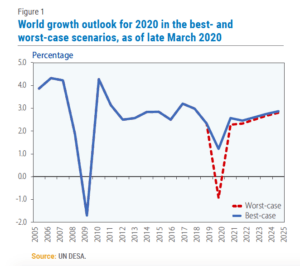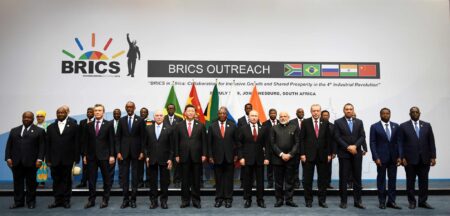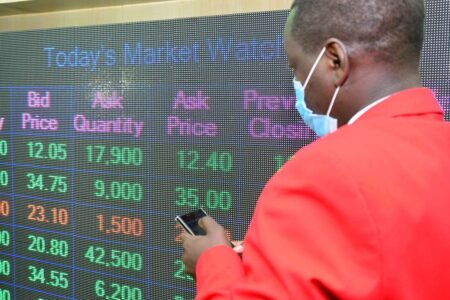The covid-19crisis could cost the world an estimated $28trn in output losses over the next five years according to the Managing Director of the International Monetary Fund (IMF), Kristalina Georgieva.
She gave her remarks during the IMF and World Bank Group annual meeting which was held virtually.
“Nine months into the pandemic, we are still struggling with the darkness of a crisis that has taken more than a million lives, and driven the economy into reverse, causing sharply higher unemployment, rising poverty and the risk of “a lost generation” in low-income countries,” Georgieva said.
She added that over the last few months the picture has become less dire although IMF continues to foresee a worst global recession since the 1930 Great Depression. She also notes that in 2020 growth is expected to fall to -4.4 per cent.
She also added that despite there being tremendous uncertainty around IMF’s forecast, they project a partial and uneven recovery in 2021, with growth expected at 5.2 per cent.
“A durable economic recovery is only possible if we beat the pandemic everywhere, and stepping up vital health measures is imperative,” she said, “As is fiscal and monetary support to households and firms, with this lifeline, such as credit guarantees and wage subsidies, likely to remain critical for some time, to ensure economic and financial stability. Pull the plug too early, and you risk serious, self-inflicted harm.”

Georgieva mentioned that new research by the IMF shows that public investment, especially in green projects and digital infrastructure, can be a game-changer. Besides creating millions of jobs, public investments can also boost productivity and incomes. (Diazepam)
She also pointed to a priority that needs to be addressed which is the global public debt which is projected to reach a record high of 100 per cent of GDP in 2021, partly due to countries needing to boost spending to fight the crisis and secure the post-pandemic recovery. Noting that for many low-income countries the action needs to be taken now.
“Faster progress on medical solutions could speed up the recovery, potentially adding almost $9trn to global income by 2025, which, in turn, could help narrow the income gap between poorer and richer nations.” She added
She added that IMF has reached over $280bn in lending commitments which is more than the a third approved since march and have more substantial resources from their $1trn lending capacity to support member countries.











